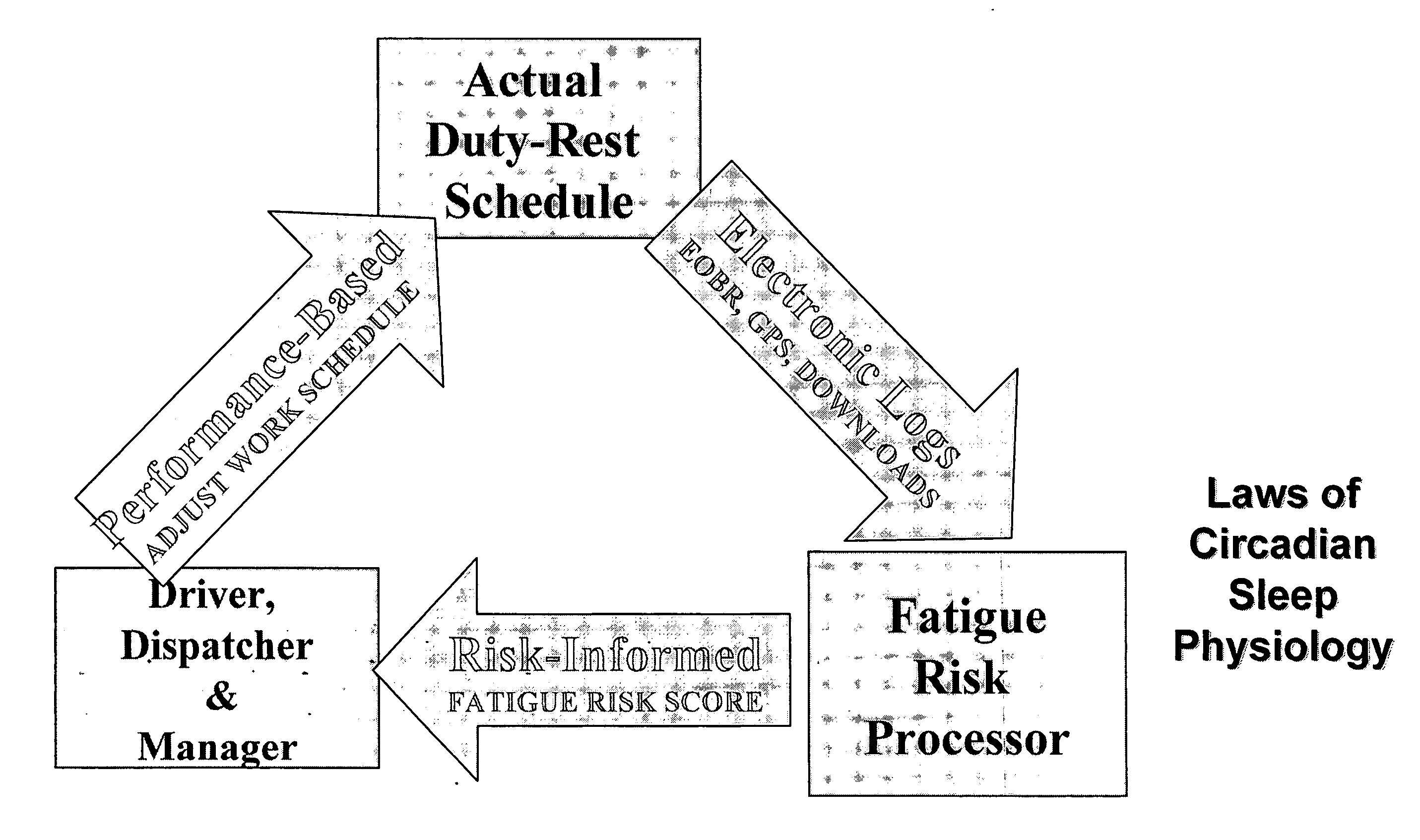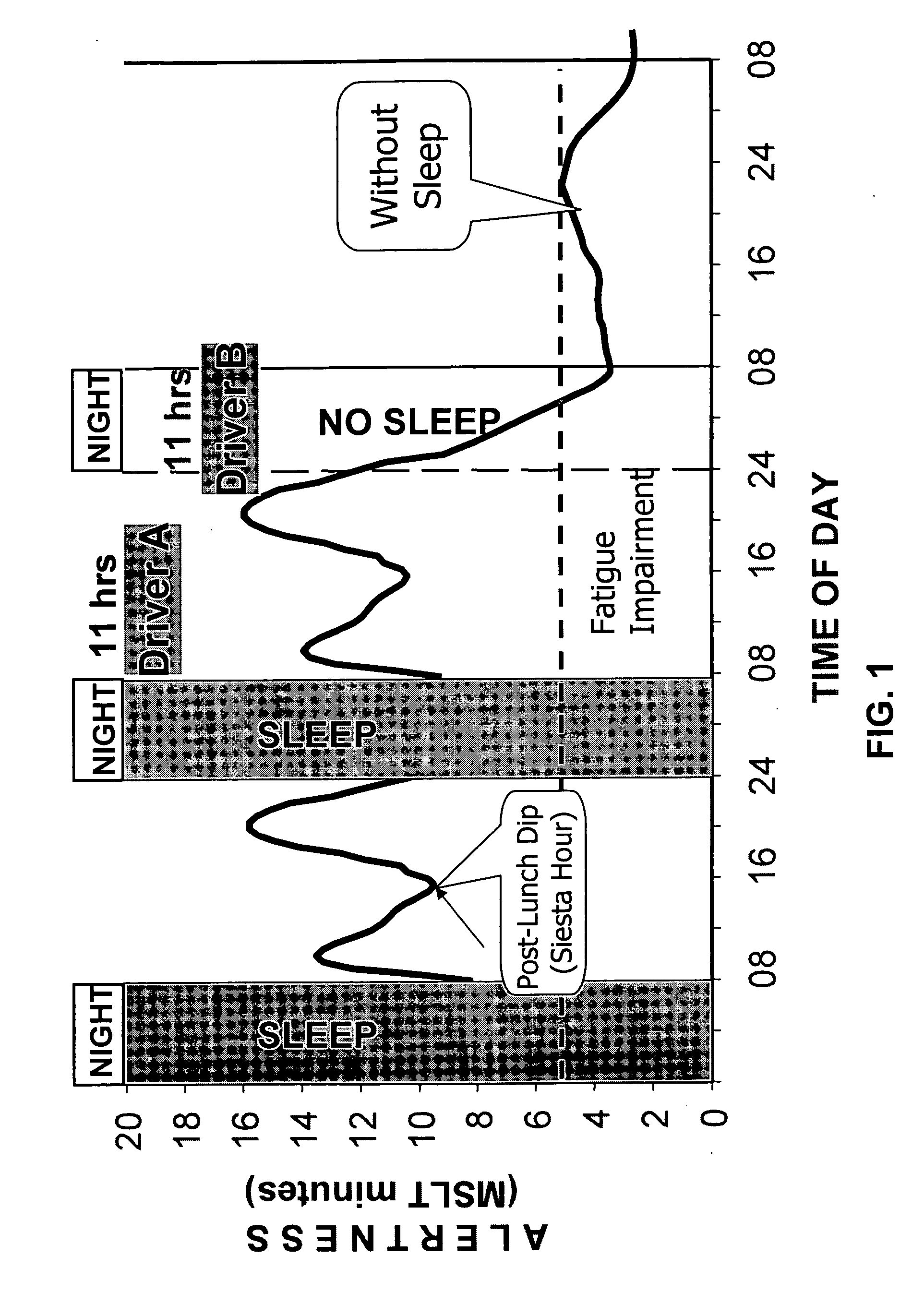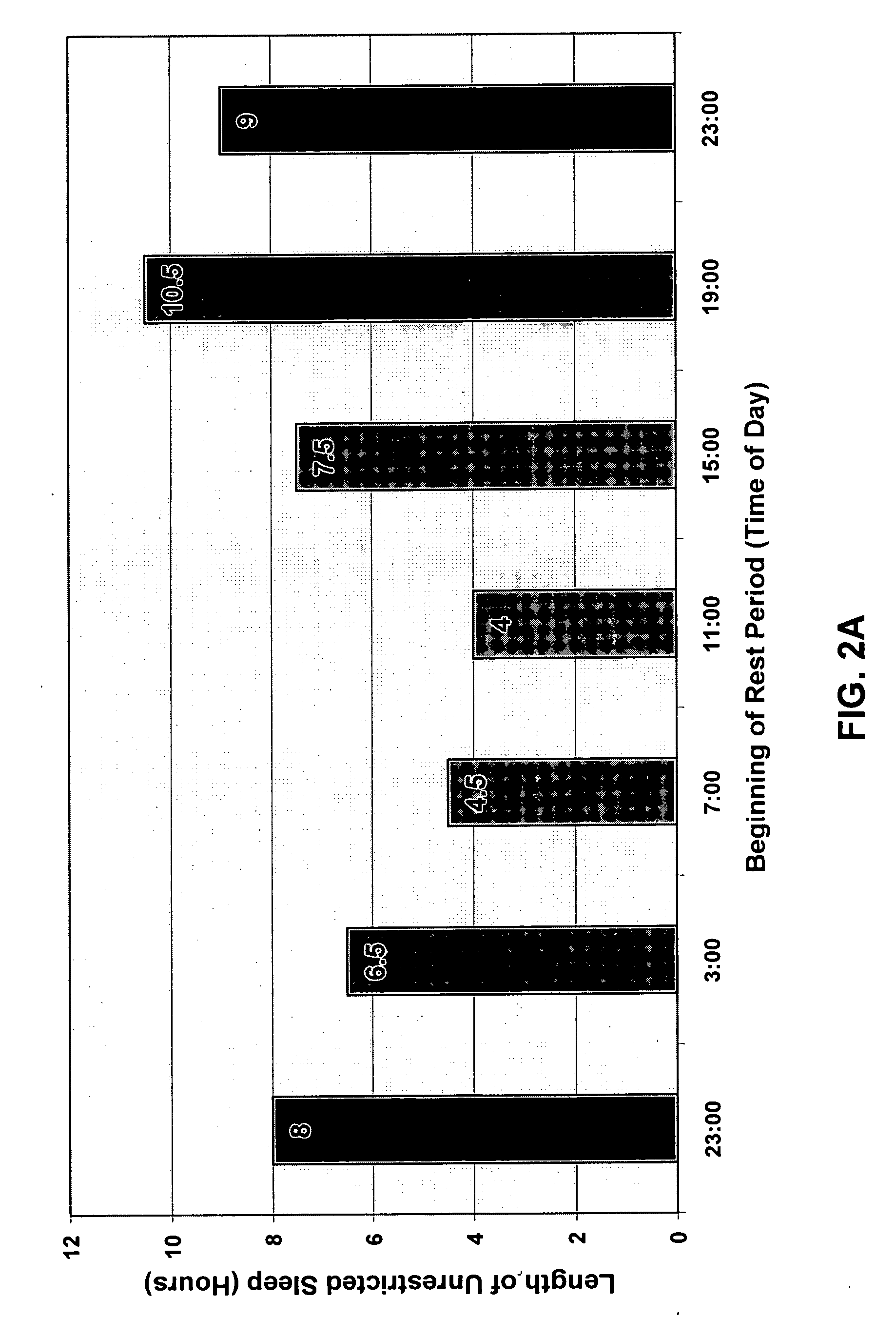Systems and methods for assessing equipment operator fatigue and using fatigue-risk-informed safety-performance-based systems and methods to replace or supplement prescriptive work-rest regulations
a technology for operator fatigue and safety performance, applied in diagnostic recording/measuring, applications, transportation and packaging, etc., can solve problems such as increased sleepiness, reduced alertness, and fatigue of workers, and achieve the effect of improving equipment operator performance and safety, and reducing the risk of fatigu
- Summary
- Abstract
- Description
- Claims
- Application Information
AI Technical Summary
Benefits of technology
Problems solved by technology
Method used
Image
Examples
Embodiment Construction
[0072] To provide an overall understanding, certain illustrative embodiments will now be described and are attached herein as supplemental sheets; however, it will be understood by one of ordinary skill in the art that the systems and methods described herein can be adapted and modified to provide systems and methods for other suitable applications and that other additions and modifications can be made without departing from the scope of the systems and methods described herein.
[0073] Unless otherwise specified, the illustrated embodiments can be understood as providing exemplary features of varying detail of certain embodiments, and therefore, unless otherwise specified, features, components, modules, and / or aspects of the illustrations can be otherwise combined, separated, interchanged, and / or rearranged without departing from the disclosed systems or methods. Additionally, the shapes and sizes of components are also exemplary and unless specified, can be altered without affectin...
PUM
 Login to View More
Login to View More Abstract
Description
Claims
Application Information
 Login to View More
Login to View More - R&D
- Intellectual Property
- Life Sciences
- Materials
- Tech Scout
- Unparalleled Data Quality
- Higher Quality Content
- 60% Fewer Hallucinations
Browse by: Latest US Patents, China's latest patents, Technical Efficacy Thesaurus, Application Domain, Technology Topic, Popular Technical Reports.
© 2025 PatSnap. All rights reserved.Legal|Privacy policy|Modern Slavery Act Transparency Statement|Sitemap|About US| Contact US: help@patsnap.com



